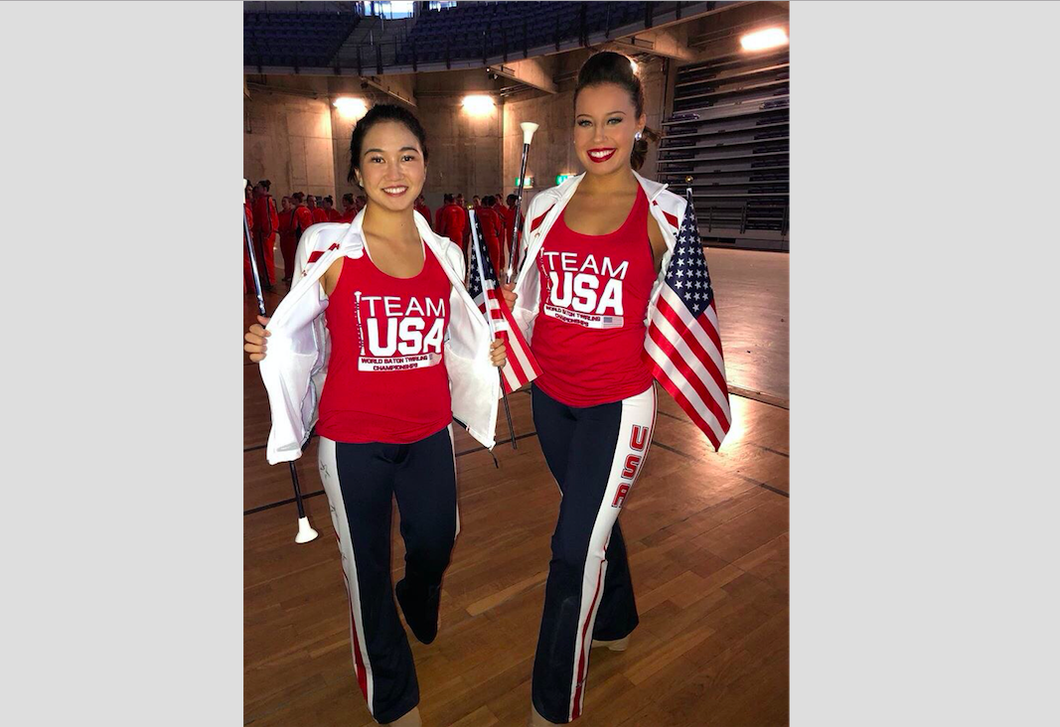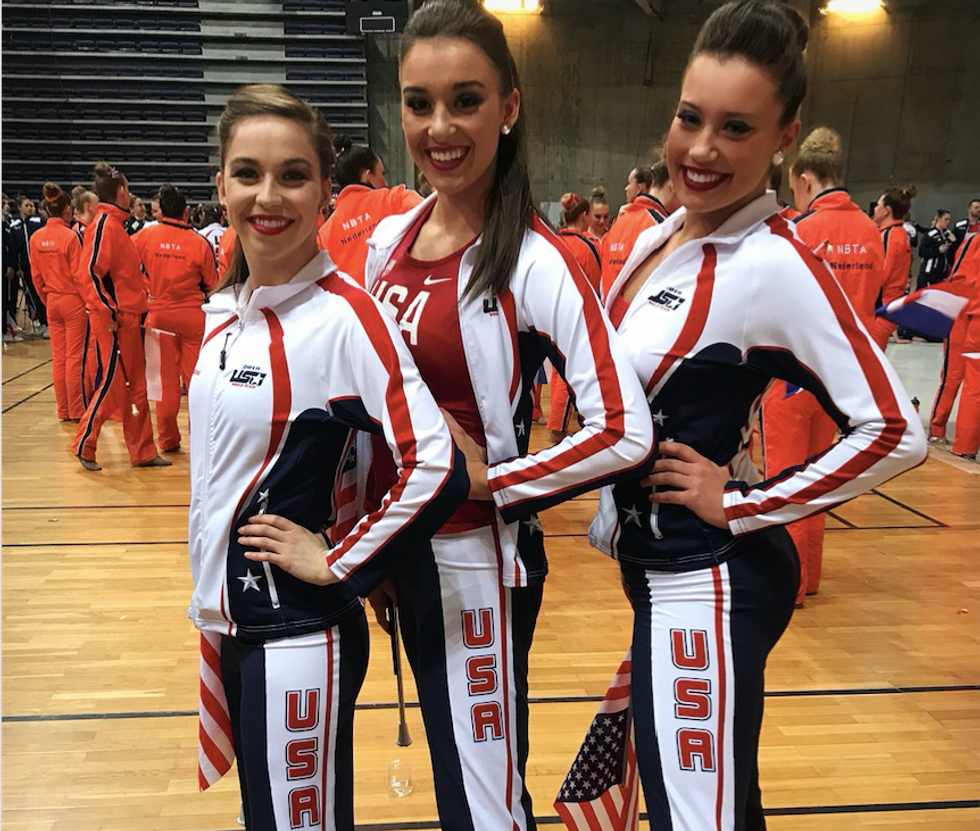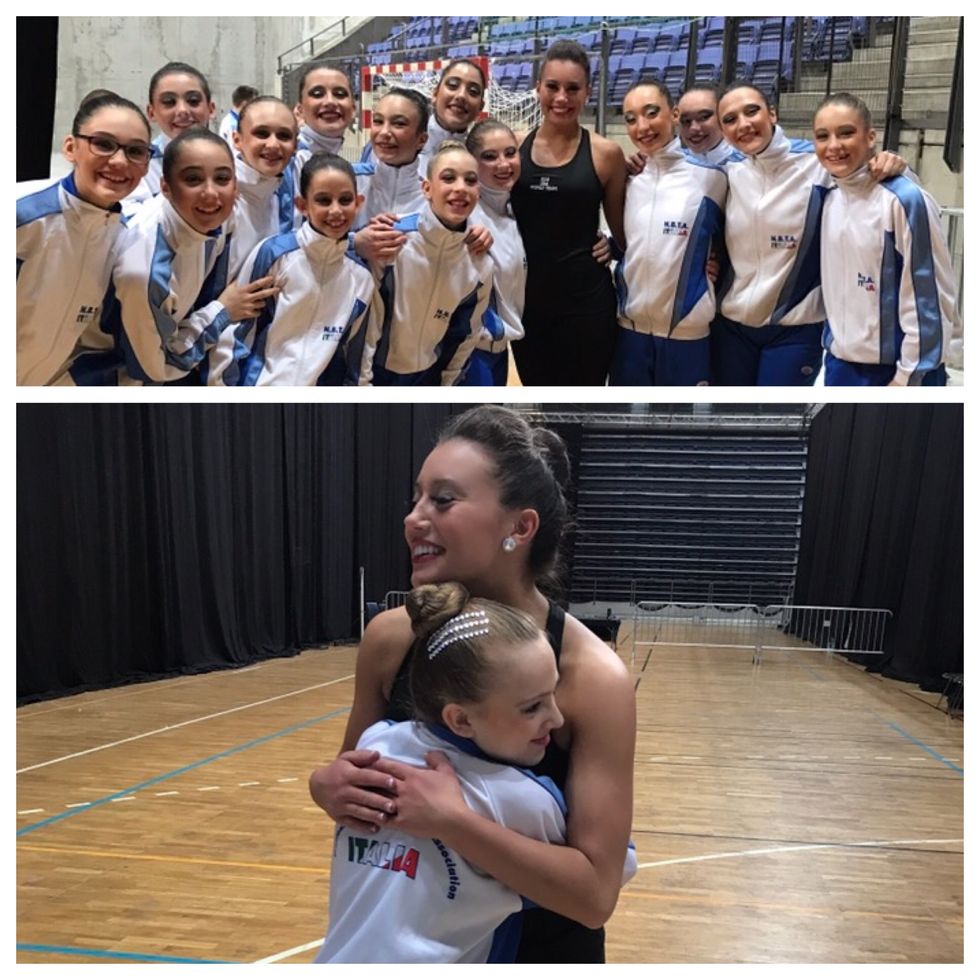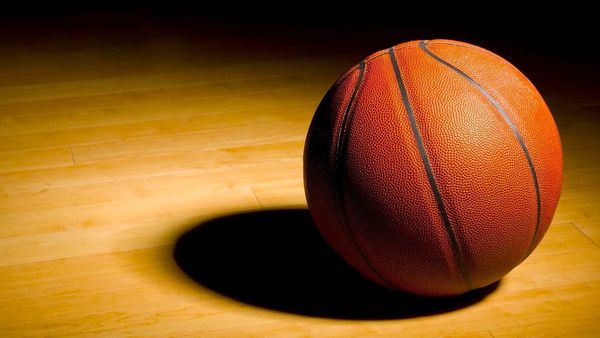Training and preparing for a world competition begins years before the championship. In fact, nine months before worlds, it's necessary to already be in top physical and mental shape to compete at nationals. In baton twirling, the top three contestants in each country qualify to represent their country at Worlds. Intense training is necessary to prepare, and for most competitors, this means daily practices for 2-4 hours a day.
College students who are enrolled in rigorous academic programs must balance training and their studies. Some athletes choose to take online classes, attend a community college, or even take the semester off from school to focus on twirling. Personally, I've chosen to balance both aspects and know I must plan and prepare for a successful future, which includes aspects of life beyond twirling.
Preparing for worlds is more than just spending hours in the gym. Of course, there is the physical fitness aspect is important, by eating properly and resting adequately between training sessions. Mental fitness is another critical part of the preparation for me. In practice, I visualize being in the arena on the day of the big competition. I think about the warm-up routine I will do. Then, when it's close to my turn, I move to the “passport area." It's where competitors go through a gate with their coach after showing their passport, and no one else is allowed through.
Next, I move to the “on deck" area. This means I am next. I can hear the loud competition music mixed with thousands of people chanting and yelling, but it's important to stay focused. I imagine them announcing my name and “USA" as I take my place on the floor. As I practice (often with just one other person), I am able to mentally channel the nervous excitement and energy that I feel on competition day. This is one way that helps me prepare for the championship.
One of my favorite parts of competing on the world level is the friendships I have made with twirlers from around the world. I've been fortunate to compete at four world championships in Belgium, Switzerland, Italy, and Norway. Through these competitions, I've encountered some of the same competitors from other countries, and many of us stay in touch by exchanging emails, and social media. At each competition, in addition to seeing old friends, I've met new people and learned about cultures that are different from my own. I've won six gold medals, but one of the biggest takeaways from my world competition experiences is the lasting friendships.
Being a member of Team USA and competing in the World Championships has been one of the biggest blessings of my life. Hopefully one day, baton twirling will officially be a sport in the Olympics, but by that time I will be in the stands watching, beaming with pride for my sport, and chanting U-S-A!
























